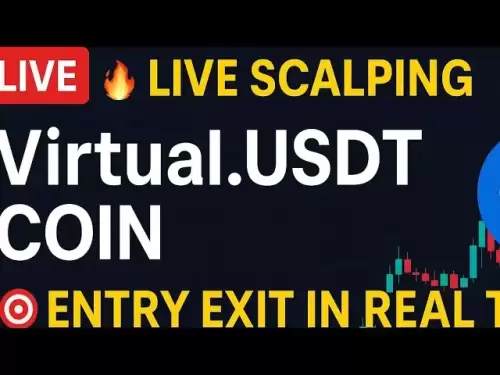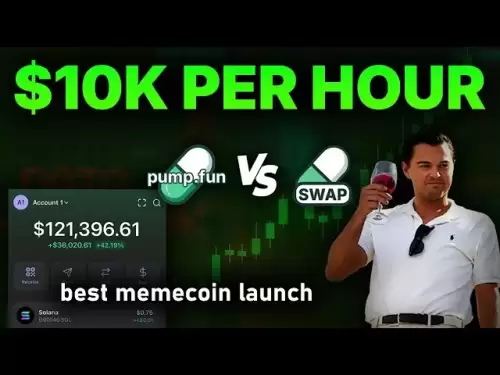-
 Bitcoin
Bitcoin $118,209.3536
1.16% -
 Ethereum
Ethereum $3,151.7546
5.98% -
 XRP
XRP $2.9277
2.35% -
 Tether USDt
Tether USDt $1.0000
0.00% -
 BNB
BNB $689.7099
1.26% -
 Solana
Solana $163.4270
1.91% -
 USDC
USDC $1.0000
0.02% -
 Dogecoin
Dogecoin $0.1983
3.74% -
 TRON
TRON $0.3008
0.51% -
 Cardano
Cardano $0.7435
2.86% -
 Hyperliquid
Hyperliquid $47.6547
-0.48% -
 Stellar
Stellar $0.4625
2.79% -
 Sui
Sui $3.9921
2.71% -
 Chainlink
Chainlink $16.0608
4.23% -
 Hedera
Hedera $0.2348
1.56% -
 Bitcoin Cash
Bitcoin Cash $496.6985
1.25% -
 Avalanche
Avalanche $21.9038
5.41% -
 UNUS SED LEO
UNUS SED LEO $8.8356
-1.88% -
 Shiba Inu
Shiba Inu $0.0...01364
5.31% -
 Toncoin
Toncoin $3.1102
4.35% -
 Litecoin
Litecoin $95.9756
3.59% -
 Polkadot
Polkadot $4.0925
5.78% -
 Monero
Monero $333.7622
-1.44% -
 Uniswap
Uniswap $9.1968
2.25% -
 Bitget Token
Bitget Token $4.6378
6.23% -
 Pepe
Pepe $0.0...01282
6.77% -
 Dai
Dai $1.0002
0.03% -
 Ethena USDe
Ethena USDe $1.0005
0.00% -
 Aave
Aave $329.9143
4.49% -
 Bittensor
Bittensor $441.4995
6.89%
What are crypto derivatives?
Crypto derivatives allow traders to speculate on cryptocurrency price movements without owning the underlying asset, offering tools like futures, options, and perpetual contracts with leverage and risk management features.
Jul 11, 2025 at 11:21 am
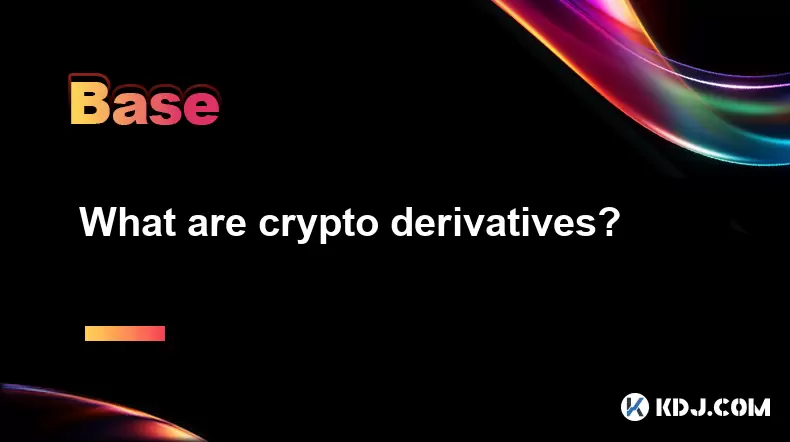
What Exactly Are Crypto Derivatives?
Crypto derivatives are financial instruments whose value is derived from an underlying cryptocurrency asset, such as Bitcoin (BTC), Ethereum (ETH), or other major digital currencies. Unlike spot trading, where investors buy and sell actual cryptocurrencies, crypto derivatives allow traders to speculate on the future price movements of these assets without owning them directly.
These financial products include futures contracts, options, swaps, and perpetual contracts. Each type has specific characteristics and use cases in the market. Traders often use crypto derivatives for hedging, speculation, or arbitrage purposes. The derivative markets provide higher liquidity and leverage compared to traditional spot markets, making them attractive to both institutional and retail traders.
How Do Futures Contracts Work in Crypto?
One of the most common types of crypto derivatives is the futures contract. A futures contract is a standardized agreement between two parties to buy or sell a specified amount of a cryptocurrency at a predetermined price and date in the future.
- These contracts can be settled either in cash or through physical delivery of the underlying asset.
- Traders can go long (betting that the price will rise) or short (betting that the price will fall).
- Futures contracts often come with leverage, allowing traders to control larger positions with a smaller amount of capital.
- Leverage increases both potential profits and risks, so it must be used carefully.
For example, if a trader believes that Bitcoin will increase in value over the next month, they might enter into a futures contract to buy BTC at today's price, hoping to profit from the upward movement later.
Understanding Options Trading in Cryptocurrencies
Another key component of crypto derivatives is options trading, which gives the buyer the right—but not the obligation—to buy or sell a cryptocurrency at a set price within a certain time frame.
- A call option allows the holder to purchase the asset at a set strike price before expiration.
- A put option allows the holder to sell the asset at the strike price.
- Premiums are paid by the buyer to the seller for this right.
- If the market moves favorably, the option can be exercised; otherwise, it can expire worthless.
Options offer flexibility and risk management capabilities. They are particularly useful for traders who want to hedge their existing crypto holdings or take advantage of volatility without committing large amounts of capital upfront.
What Are Perpetual Contracts and Why Are They Popular?
Perpetual contracts are a unique type of crypto derivative that do not have an expiration date. This feature makes them more flexible than traditional futures contracts.
- These contracts mimic the behavior of a spot market but with leverage.
- Funding rates are periodically exchanged between long and short positions to ensure the price stays close to the spot price.
- Traders can hold positions indefinitely, provided they meet margin requirements.
- High leverage—sometimes up to 100x—is available on some platforms.
Because of their flexibility and accessibility, perpetual contracts have become the most popular form of crypto derivatives among speculative traders. They enable users to benefit from price swings without worrying about contract expiry.
How Swaps Function Within the Crypto Derivatives Market
Swaps are another category of crypto derivatives that involve the exchange of cash flows or values between two parties based on the performance of an underlying cryptocurrency.
- In crypto swap contracts, participants agree to exchange returns from one asset for returns from another.
- These are commonly used for interest rate swaps or volatility swaps.
- They can help institutions manage exposure to volatile crypto prices.
- Swaps may also be structured as leveraged products.
Swaps are typically over-the-counter (OTC) instruments and are more commonly used by professional traders and institutions rather than individual retail traders due to their complexity and customization.
Risks and Considerations When Trading Crypto Derivatives
Trading crypto derivatives comes with several risks that traders should fully understand before entering the market:
- Leverage risk: Using high leverage can result in significant losses beyond the initial investment.
- Market volatility: Cryptocurrencies are inherently volatile, and derivatives amplify this effect.
- Liquidity concerns: Some derivative products may lack sufficient liquidity, especially during extreme market conditions.
- Counterparty risk: On unregulated or less reputable platforms, there's a risk that the other party may default.
Traders must conduct thorough research, use stop-loss orders, and maintain proper risk management strategies when engaging in crypto derivatives trading.
Frequently Asked Questions (FAQ)
Q: Can I trade crypto derivatives without owning any cryptocurrency?
Yes, you can trade crypto derivatives without holding any actual cryptocurrency. These instruments derive their value from the underlying asset’s price, allowing you to speculate on price movements without owning the asset itself.
Q: What is the minimum investment required to start trading crypto derivatives?
The minimum investment varies depending on the platform and the type of derivative being traded. Some exchanges allow entry with small amounts, while others may require higher initial deposits, especially for institutional-grade products.
Q: Are crypto derivatives regulated?
Regulation of crypto derivatives depends on the jurisdiction. In some countries like the United States and Japan, certain derivatives such as Bitcoin futures are offered through regulated exchanges. However, many platforms remain unregulated, increasing counterparty and compliance risks.
Q: How does funding rate work in perpetual contracts?
Funding rates in perpetual contracts are periodic payments made to ensure the contract price aligns with the spot price. If the perpetual price is above the spot price, long position holders pay shorts, and vice versa. Funding rates are usually calculated every 8 hours.
Disclaimer:info@kdj.com
The information provided is not trading advice. kdj.com does not assume any responsibility for any investments made based on the information provided in this article. Cryptocurrencies are highly volatile and it is highly recommended that you invest with caution after thorough research!
If you believe that the content used on this website infringes your copyright, please contact us immediately (info@kdj.com) and we will delete it promptly.
- XRP Price: Higher Lows Hint at Potential Trend Shift?
- 2025-07-16 15:10:12
- Bitcoin, Crypto Casinos, and Bonuses: A New Yorker's Guide to Hitting the Jackpot
- 2025-07-16 15:15:12
- Bitcoin, Deutsche Bank, and Mainstream Adoption: A New Era?
- 2025-07-16 14:30:13
- Bitcoin's ETF Demand & Institutional Momentum: A NYC Perspective
- 2025-07-16 14:50:12
- Bitcoin's Bullish Run: Demand Surges, Correction Unlikely?
- 2025-07-16 12:30:12
- JPMorgan, Blockchain, and Stablecoins: A Wall Street Revolution?
- 2025-07-16 14:50:12
Related knowledge
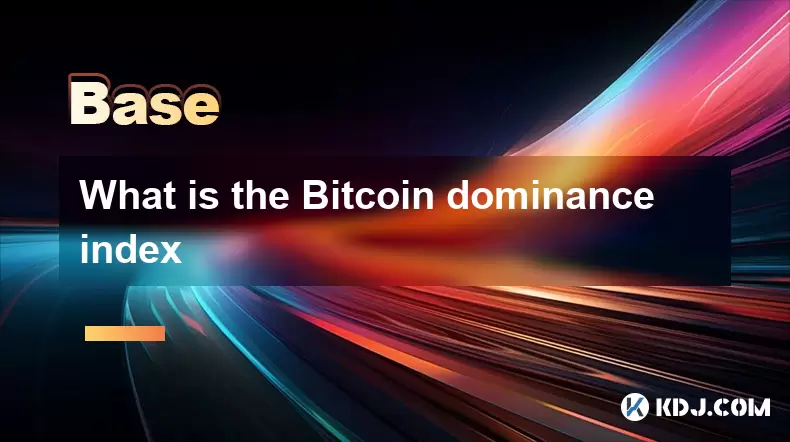
What is the Bitcoin dominance index
Jul 12,2025 at 10:35pm
Understanding the Bitcoin Dominance IndexThe Bitcoin Dominance Index, often abbreviated as BTC.D, is a metric used to measure Bitcoin's market capital...
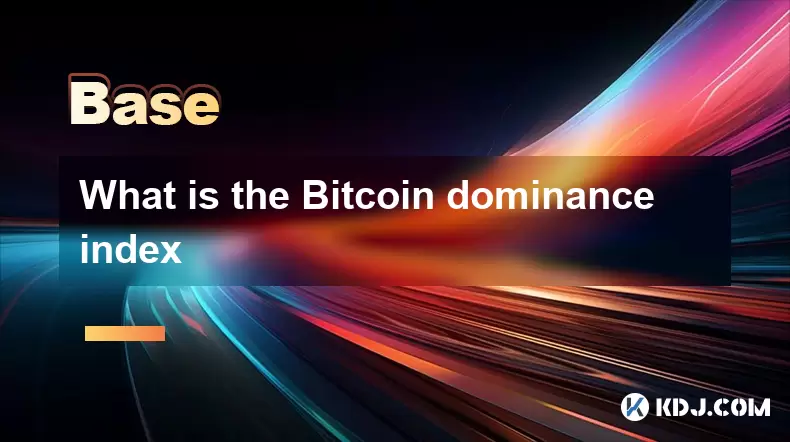
What is the Bitcoin dominance index
Jul 11,2025 at 04:29am
What is the Bitcoin Dominance Index?The Bitcoin Dominance Index is a metric used to gauge Bitcoin's market capitalization relative to the total market...
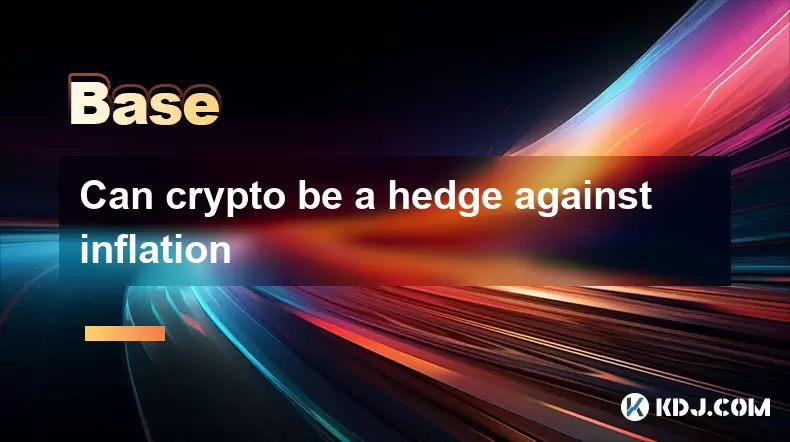
Can crypto be a hedge against inflation
Jul 14,2025 at 12:21am
Understanding the Concept of Hedging Against InflationInflation refers to the general increase in prices and fall in the purchasing value of money ove...
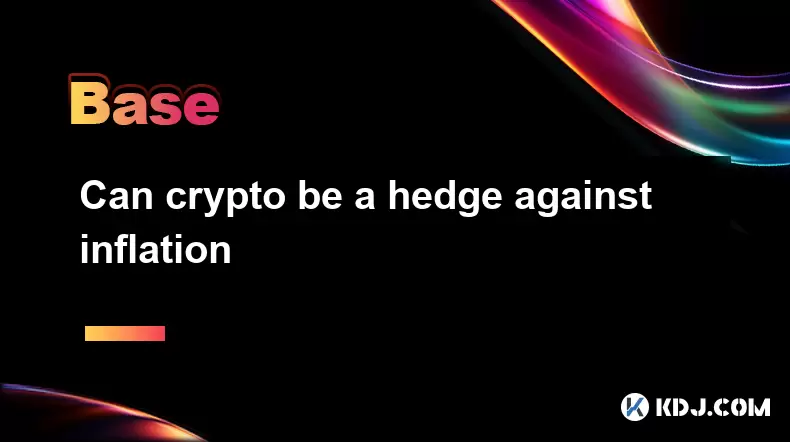
Can crypto be a hedge against inflation
Jul 12,2025 at 12:07pm
Understanding the Role of Blockchain in Decentralized Finance (DeFi)Blockchain technology serves as the backbone of decentralized finance, offering a ...
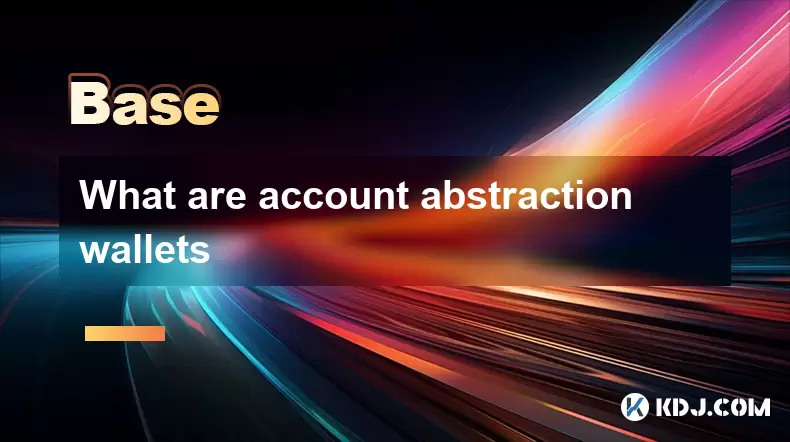
What are account abstraction wallets
Jul 13,2025 at 01:43am
Understanding the Concept of Account AbstractionAccount abstraction is a term frequently used in the Ethereum ecosystem, particularly within discussio...
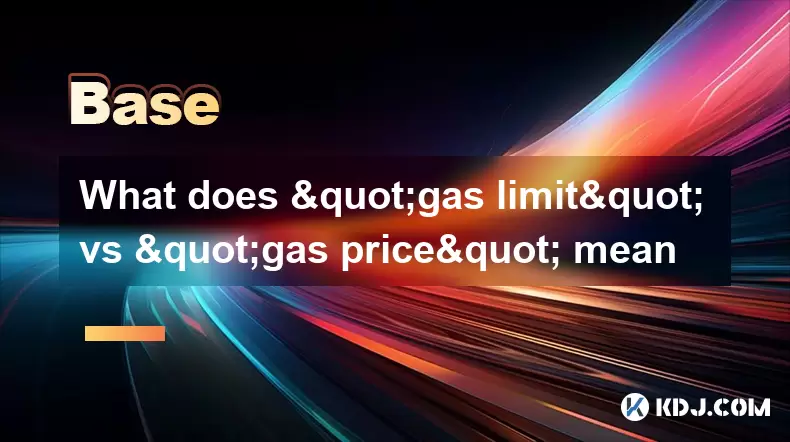
What does "gas limit" vs "gas price" mean
Jul 13,2025 at 04:00am
Understanding the Basics of Gas in Blockchain TransactionsIn the Ethereum and other EVM-compatible blockchains, every transaction requires computation...

What is the Bitcoin dominance index
Jul 12,2025 at 10:35pm
Understanding the Bitcoin Dominance IndexThe Bitcoin Dominance Index, often abbreviated as BTC.D, is a metric used to measure Bitcoin's market capital...

What is the Bitcoin dominance index
Jul 11,2025 at 04:29am
What is the Bitcoin Dominance Index?The Bitcoin Dominance Index is a metric used to gauge Bitcoin's market capitalization relative to the total market...

Can crypto be a hedge against inflation
Jul 14,2025 at 12:21am
Understanding the Concept of Hedging Against InflationInflation refers to the general increase in prices and fall in the purchasing value of money ove...

Can crypto be a hedge against inflation
Jul 12,2025 at 12:07pm
Understanding the Role of Blockchain in Decentralized Finance (DeFi)Blockchain technology serves as the backbone of decentralized finance, offering a ...

What are account abstraction wallets
Jul 13,2025 at 01:43am
Understanding the Concept of Account AbstractionAccount abstraction is a term frequently used in the Ethereum ecosystem, particularly within discussio...

What does "gas limit" vs "gas price" mean
Jul 13,2025 at 04:00am
Understanding the Basics of Gas in Blockchain TransactionsIn the Ethereum and other EVM-compatible blockchains, every transaction requires computation...
See all articles























